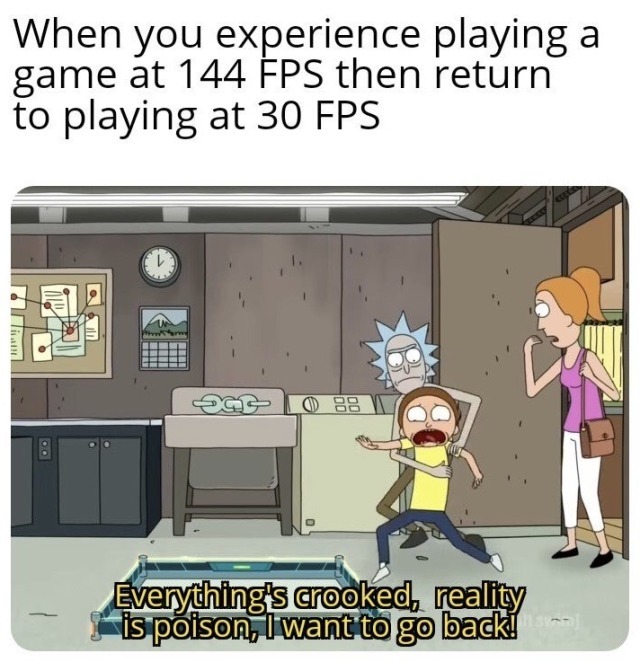this post was submitted on 11 Dec 2023
653 points (94.7% liked)
Gaming
3089 readers
143 users here now
!gaming is a community for gaming noobs through gaming aficionados. Unlike !games, we don’t take ourselves quite as serious. Shitposts and memes are welcome.
Our Rules:
1. Keep it civil.
Attack the argument, not the person. No racism/sexism/bigotry. Good faith argumentation only.
2. No sexism, racism, homophobia, transphobia or any other flavor of bigotry.
I should not need to explain this one.
3. No bots, spam or self-promotion.
Only approved bots, which follow the guidelines for bots set by the instance, are allowed.
4. Try not to repost anything posted within the past month.
Beyond that, go for it. Not everyone is on every site all the time.
Logo uses joystick by liftarn
founded 1 year ago
MODERATORS
you are viewing a single comment's thread
view the rest of the comments
view the rest of the comments

That article states people can perceive images as rapidly as once every 13 milliseconds, which they math out to 75 fps, 25% higher than 60.
Looking at the study itself, they were testing whether participants could pick out a picture that displayed for 13-80 ms when “masked” by other brief pictures, with a focus on whether it made a difference if the participant was told what image they were looking for before or after seeing the images. What they found was that participants could pick out the image as low as the 13 ms mark (albeit with less accuracy) and could generally do so better if told what to look for beforehand.
What this tells me is that your source has nothing to say about anything over 75 fps. It also was testing in a fundamentally different environment than a video game, where your brain will constantly expect an image similar to and stemming from the image before it rather than seeing a completely different image. If you were to draw conclusions based on the study despite the differences, what the study would suggest is that knowing what to look for, as your brain does gaming, would make you better able to pick out individual frames. This makes me want to think that your source does not support your assertion, and that in a game you could perceive frame rates higher than 75 fps at a minimum.
From my own knowledge, there’s also a fundamental difference between perceiving reality and computer screens in the form of motion blur. Objects moving in real time will leave a faint blur behind when perceiving it that your brain can use to fill in any blanks it may have missed, making reality appear smoother than it is. For an example of this wobble a pencil back and forth to make it “bend.” Movies filmed at 24 fps capture this minute motion blur as they film which makes it easier for our brains to watch them despite the lower frame rate. Real time rendered video games do not have this effect, as there are no after images to fill in the blanks (unless you turn on motion blur, which doesn’t do a good job emulating this).
This means video games need to compensate, and the best way to do that is more frames per second so your brain doesn’t need to fill in the blanks with the motion blur it’s used to seeing in the real world. You’ll obviously get diminishing returns from the same increase, but there will still be returns.